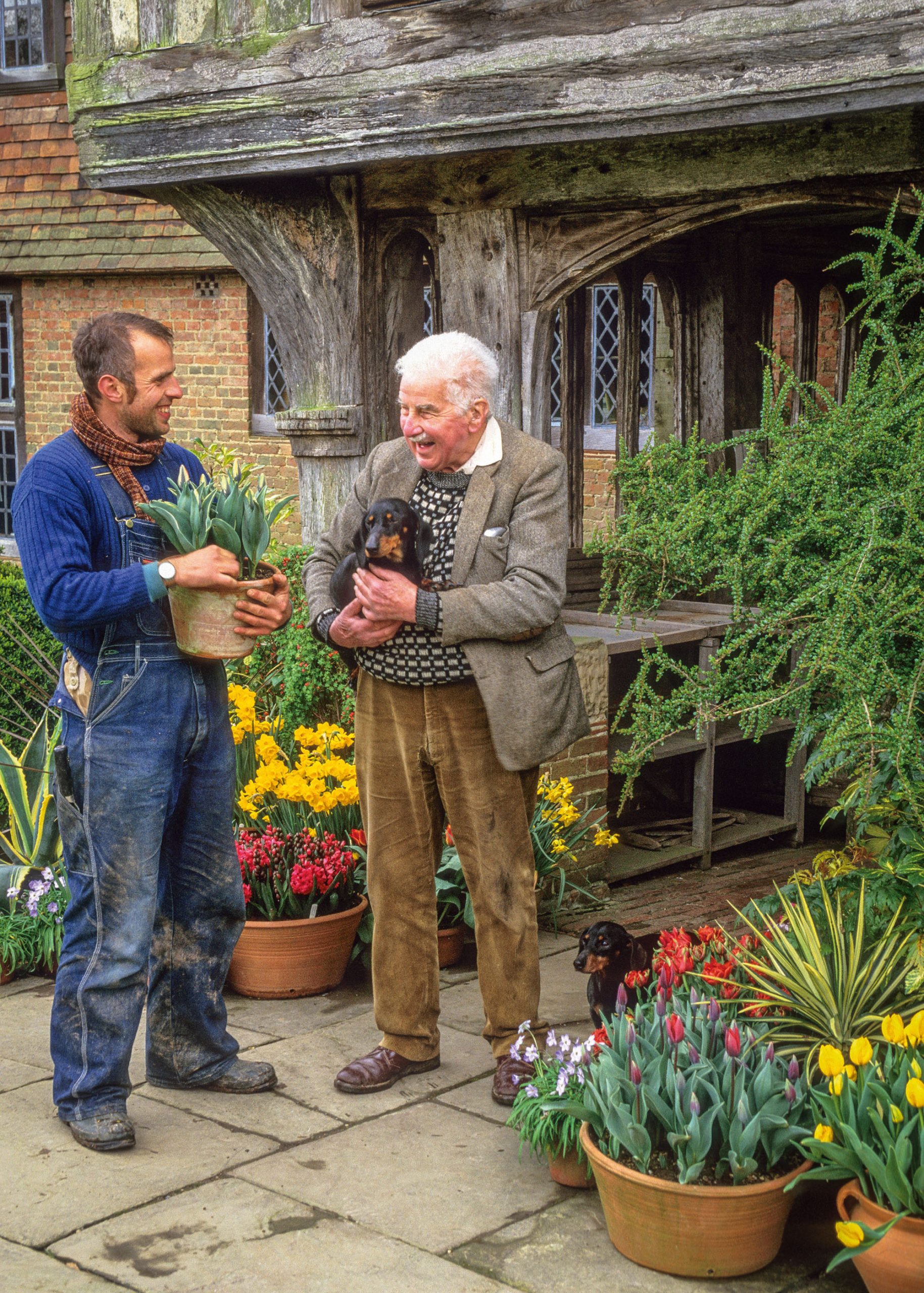Alan Titchmarsh: The art and craft of the head gardener
There are a healthy number of estates whose gardening staff are a vital part of their continued existence — Alan Titchmarsh pays tribute.


Of all the job titles going, few come with a more intimidating provenance than that of head gardener. Perhaps it is something to do with our literary as well as our horticultural history. As children, the first head gardener most of us were introduced to came courtesy of Beatrix Potter in The Tale of Peter Rabbit. As a result, we grew up with an image of the head gardener as a bearded, bespectacled old grump who liked his vegetables in serried ranks and his rabbits in a pie. True, later in life, when we ourselves became gardeners (head or under) and cultivated a vegetable patch or kitchen garden where rabbits would regularly feast, we began to feel a degree of sympathy for that dour, rake-wielding Scot.
Fast-forward 30 years and the next literary head gardener with whom I had any dealings was also from north of the border. Angus McAllister presided over the demesnes of Blandings Castle, the Shropshire seat of P. G. Wodehouse’s delightfully bumbling creation Lord Emsworth. His Lordship (Clarence to his intimates) suffered agonies at the hands of his flame-whiskered employee, who, like many a fictional head gardener, had a will of iron, a fiery temper and a firm conviction that the garden was his own personal territory, within whose confines the family were at best grudgingly admitted and at worst positively discouraged.
Wodehouse summed it up neatly: ‘Across the threshold of this Eden the ginger whiskers of Angus McAllister lay like a flaming sword.’ Read the short story Lord Emsworth and the Girl Friend and you will discover not only the breadth of Wodehouse’s floral knowledge, but also his understanding of the traditional disposition of a head gardener.
Mercifully times have changed. There may be an underlying possessiveness present in every head gardener — that much is laudable and manifests itself in care, attention and matchless cultivation techniques — but it must be sublimated. The employers of these sons and daughters of the soil must at least be given the impression that their input is of vital importance and any opinions to the contrary reserved for mutterings under the breath within the sacred confines of the potting shed.
"When David Cameron opined that those unsuited to working in jobs that required a degree of skill should be encouraged to take up gardening, I took up my pen and let him know in crisply defined terms the error of his judgement"
When I began to garden for a living, in the mid 1960s, gardeners employed in what was referred to as ‘private service’ were a diminishing band. The war had seen their numbers reduced in the cause of economy. By the 1950s and 60s many large houses that had enjoyed the services of a head gardener and under gardeners, when labour was cheap and forelocks were tugged, now found themselves forced to make do with a jobbing gardener who did a day here and a day there, servicing the wants of a number of grand houses where rose beds were grassed over and Victorian greenhouses fell into ruins.
There are still a healthy number of estates where permanent gardening staff are a vital part of their existence. The McGregors and McAllisters have melted away or thrown in the trowel to be replaced by horticulturists who, as well as knowing their stuff, must also be well versed in diplomacy and man management. Head gardeners such as Fergus Garrett at Great Dixter, Troy Scott Smith at Sissinghurst and recently retired husband-and-wife team Simon Goodenough at Folly Farm and Debs Goodenough at Highgrove for the then Prince of Wales are masters and mistresses not only of their craft, but of myriad other attributes that make a modern head gardener.
Dealing with the public, dealing with a high-powered and exacting employer and running a thriving garden which, in many instances, must wash its face commercially, is no mean feat. When the then Prime Minister Lord Cameron opined that those members of society who were unsuited to working in jobs that required a degree of skill should be encouraged to pick litter or take up gardening, I took up my pen and let him know in crisply defined terms the error of his judgement. He did have the courtesy to reply and apologise.
Exquisite houses, the beauty of Nature, and how to get the most from your life, straight to your inbox.
The job title may have altered to something more suited to the 21st century, but I revere the appellation of head gardener, which comes with weight, responsibility and a profound respect for someone who has reached the top of their game.
Chatsworth: The gardens and the people who made them by Alan Titchmarsh is out now
Alan Titchmarsh is a gardener, writer, novelist and broadcaster.
